
A couple of months ago, barely anybody had heard of a coronavirus.
Now, (at 4pm on Monday 9th March) more than 110,000 cases of Covid-19 have been diagnosed globally, and there have been 3,885 deaths - four of which are from the UK.
Advert
What started as a contained issue has now spread across over 80 countries, and just this afternoon Prime Minister Boris Johnson warned that the UK should be braced for the virus to continue to "spread in a significant way".
Naturally, much of the world has gone into panic mode. People are stockpiling pasta, toilet roll and tinned goods from their local supermarkets, cancelling holidays and stepping out in face masks as a means of avoiding infection.
But what precautions should we really be taking as coronavirus persists? And should we really be worried about it? Tyla has sorted the facts from the myth and sought to answer all the biggest questions about this brand new virus. We hope it brings you some much needed context and information in what is a difficult time for many.
How did Covid-19 start?
Advert

Covid-19 is a new strain of a coronavirus - which are a large group of viruses common in animals. It is the newest of seven coronaviruses known to infect humans, and is the third in the past three decades which has been known to jump from animals to humans.
A cousin of the SARS virus, Covid-19 was first flagged in Wuhan, China, back in December, when health officials noted multiple cases of "pneumonia with unknown cause". As it spread from China to other countries, the outbreak was named a Public Health Emergency of International Concern on the 30th January.
Advert
While we can't know for sure, the virus is now thought to have originated in a Wuhan whet market - where seafood and poultry is sold.
Many of the people initially infected with the coronavirus either worked or frequently shopped in the Huanan seafood wholesale market in the centre of the city, which is known to sell live and newly slaughtered animals.
What are the symptoms of Covid-19?
Covid-19 can cause pneumonia that is unresponsive to antibiotics. According to the NHS, the main coronavirus symptoms to look out for are:
- a cough
- a high temperature
- shortness of breath
In more severe cases, patients can suffer organ failure and even (rarely) death.
Advert
Is Covid-19 more dangerous than seasonal flu?
As this coronavirus continues to spread, you will likely hear some people saying: "It's just the flu". While both influenza and Covid-19 are respiratory illnesses, overall the latter is already proving to be more serious.
For one, the average flu strain kills around 0.1 per cent of those infected, but the Covid-19 mortality rate is already much higher, with China officials even suggesting it stands at around 2 per cent (this may be lower, as less severe cases are going unreported).
Advert
Another issue making Covid-19 more dangerous is the fact that humans have never contracted it before.
Richard Martinello, MD told Yale Medicine: "While many people globally have built up immunity to seasonal flu strains, Covid-19 is a new virus to which no one has immunity. That means more people are susceptible to infection, and some will suffer severe disease."
Plus, there is not yet a vaccine for this new strand of coronavirus, while there is one for influenza. Essentially, we know how to treat flu, but Covid-19 is brand new territory.
Will hand sanitiser actually protect me against Covid-19?

Yes, hand sanitiser gel will help when it comes to combating Covid-19, but washing your hands regularly for 20 seconds should always be first port of call.
The NHS warns that we should "use hand sanitiser gel if soap and water are not available," while the World Health Organisation suggests using a sanitiser with 60 per cent alcohol if you're on the go.
They add that for the gel to be most effective, it should be used for 20-30 seconds, and ensure it covers all surfaces of the hand and fingers.
However, be warned that DIY hand sanitisers are likely not an effective substitute, because they are unlikely to contain that all important 60 alcohol percentage needed to kill the virus.
Is it true that only old people are at risk from coronavirus?
It is true that, just like with seasonal flu, elderly people are at a greater risk of contracting a severe case of Covid-19.
While research is still in its early stages, a study of 138 coronavirus patients at Wuhan University hospital discovered that the virus was more likely to affect older men with pre-existing health conditions.
However, the World Health Organisation warns that the virus is also dangerous for anybody with weakened immune systems or an underlying health issue, diabetes, obesity, asthma, lung or kidney disease and heart disease.
This is not to say that young people aren't at risk of contracting and spreading the disease either. Those who are at very high risk of exposure, such as health workers, should be particularly alert.
Should I be wearing a face mask?

There has been much discussion over whether we should start wearing masks to prevent infection from Covid-19.
While it is true that face masks may prevent you from touching your nose and mouth, which are a key way in which the virus is transmitted, they do not account for the fact it can also be caught through your eyes, too.
The World Health Organisation advises that people should only wear masks "if [they] are coughing or sneezing" as a means to stop their own germs spreading. Even in this case, it is only effective if you avoid touching it completely, and remove it as soon as it gets damp.
"If you are healthy, you only need to wear a mask if you are taking care of a person with suspected 2019-nCoV infection," they add.
Should I be stockpiling?
According to a survey from Retail Economics based on 2000 shoppers as many as one in 10 customers in the UK is now stockpiling.
People across the country are encountering bare shelves and supermarkets such as Tesco and Waitrose are among retailers restricting the sale of essential household items - like toilet paper and hand sanitiser - and foods - like pasta and tinned goods.
But do we really need to?
Culture Secretary Oliver Dowden told the BBC: "There is absolutely no need for anybody to stockpile or anything like that. We are confident that supermarkets have the supply chains necessary to keep shelves stocked for people.
"The number one thing is to ensure we work with the supermarkets and others to ensure that their supply chains are there, that the shelves keep being restocked as people purchase things."
Should I avoid booking holidays or cancel a trip I've got booked?
As the coronavirus continues to spread, we've seen airlines such as British Airways, EasyJet and Ryanair cancel flights due to lack of demand.
However, the official government message at the moment is that it is "business as usual," depending on the location you're travelling to and how seriously infected by the virus it is. (This could all chance when we enter the 'delay' stage of proceedings, but we are now still looking to contain the virus).
Speaking at a press conference that outlined the government's six-point plan for battling the virus, Chief Scientific Adviser Sir Patrick Vallance recently said: "At the moment the outbreaks are across Europe and across most of the world in some form or other and they are contained in many places but are becoming un-contained in some places.
"And again it depends on the stage. Once the epidemic is everywhere then at that point restricting travel makes no difference at all.
"At the moment we are certainly not recommending any change to behaviours...and if it grows in the UK it doesn't really make sense to say you are more at risk somewhere else than you are here."
If you're planning to travel abroad and are concerned about coronavirus, the NHS advises checking the country by country travel advice on GOV.UK.
Is it true a coronavirus vaccine is around the corner?
While scientists are already working hard to learn about the coronavirus and find a vaccine, they have warned that it won't arrive overnight.
Speaking in a Reddit thread, Dr. John Torres, medical correspondent for NBC News said: "We're optimistically at least one year from a vaccine."
Professor Robin Shattock and his team at the Department of Infectious Disease at Imperial College London told The Telegraph: "We have the kind of technology to be able to generate a vaccine with a speed that's never been realised before.
"Most vaccines are five years in the discovery phase, and at least one or two years to manufacture and get into trials.
"We may not be the first, but it only requires one group to get there. We're only one party and at some point we might say: 'Somebody else is ahead, we should stop working'. While we want to go the whole way, we're also prepared to stand down."
However, BBC warns that even if we discovered a vaccine before Christmas, time would then need to be factored for it's mass-production, which could take another six months at least.
Plus, that's assuming it runs smoothly. Multiple strains of coronavirus which cause the common cold have never been susceptible to a vaccine before.
Could my pet give me coronavirus?
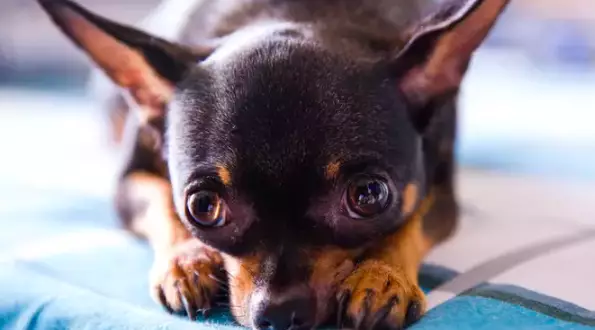
We recently faced reports that a dog in Hong Kong had tested "weak positive" for the coronavirus.
While this caused worry among animal welfare experts that pets could infect either their owners or other animals with the virus, Ian Mackay, University of Queensland virologist, told the Financial Times that domestic animals were unlikely to "become a significant route for human infection".
Meanwhile Hong Kong University microbiologist Ho Pak-leung added that the chance of dog-to-human transmission was still "very small".
Is coronavirus really mutating and becoming more deadly?
While it is true that all viruses mutate over time, there is currently no evidence that a new strain of the coronavirus would be drastically more deadly.
New analysis of 103 samples of the virus conducted by Chinese scientists has found there were two early main strains of the virus, dubbed L and S. Although 70 per cent of cases were found to be the slightly more aggressive L strain, there was little difference between the two.
"In all practical terms, the virus is as it was when it originally emerged," said Ian Jones from the University of Reading, UK to the New Scientist.
"There's no evidence it is getting any worse." This has since also been echoed by the World Health Organisation.
Featured Image Credit: TraDocTopics: News, Coronavirus, Health, Covid-19